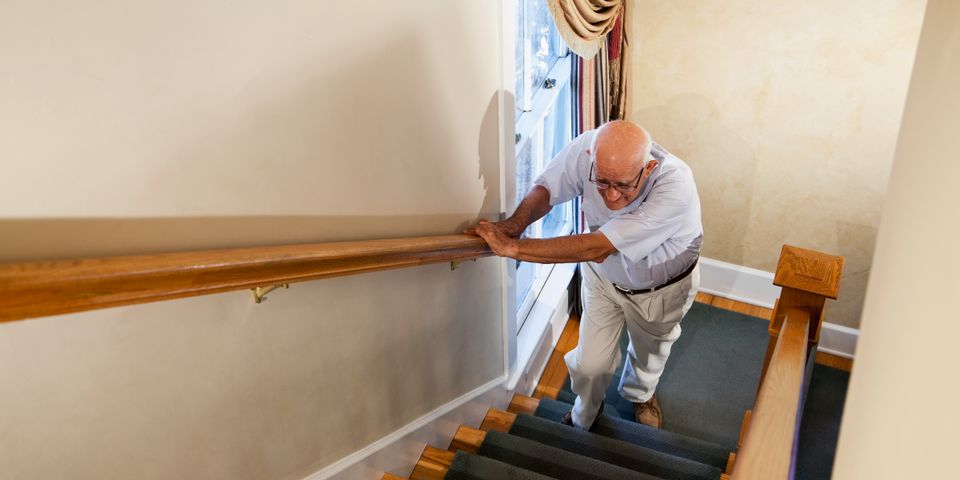How to Protect Your Elderly Loved One From Falls

Falls are one of the most common hazards among elderly adults. As people age, maintaining a sense of balance and spatial awareness becomes a challenge, and remaining upright is more difficult as the body becomes frail and unstable. Falls can potentially be fatal, so every caregiver should be aware of preventive measures that can limit falls.
4 Ways to Safeguard Your Aged Loved One From Falling
1. Be Aware of the Surroundings
Most homes are rife with potential fall hazards. Steps, floor-level decor items, clutter, and table or chair legs can be dangerous to elderly people as they navigate their surroundings. Do your best to keep clutter off of the ground, and remove unnecessary ground-level items that could turn into fall hazards. Keep hallways, rooms, and floors clear, and make sure that staircases are equipped with stable handrails.
2. Check Medications

Some medications have dangerous side effects including dizziness or fainting. Check your loved one's medications regularly so that you're aware of the side effects, and bring up concerns to your relative's health care provider if they seem increasingly dizzy or disoriented. If you are their primary caregiver, be ready to assist them with moving throughout the home if they seem unstable.
3. Install Grab Bars
As your relative gets older, it's wise to install grab bars in places where they are likely to fall. Toilets, showers, and tubs can be especially hazardous since the surfaces are slippery when wet. As their caregiver, it's best to verify that the grab bars are installed in accessible spots where your loved one can reach them if needed.
4. Watch for Signs of Deteriorating Balance
As people lose their balance, they'll rely more on nearby furniture, railings, or other items to steady themselves. If you notice your relative frequently reaching for things to remain on their feet, it's probably time to set up an appointment with a physical therapist so that they can strengthen their muscles and improve their balance. Alternatively, a doctor might recommend walking aids like a walker or a wheelchair if needed.
If you or a loved one needs help with Activities of Daily Living (ADL) which includes meal preparation, light housekeeping, toileting, and bathing, trust the professionals at Deer Valley Home Health Services in St. Louis, MO. There’s also the option of arranging for private duty nurse visits, if you do not qualify for Medicaid. Call (314) 355-3679 to discuss your specific needs, or visit them online to learn more about their services.
About the Business
(2 reviews)
Have a question? Ask the experts!
Send your question

